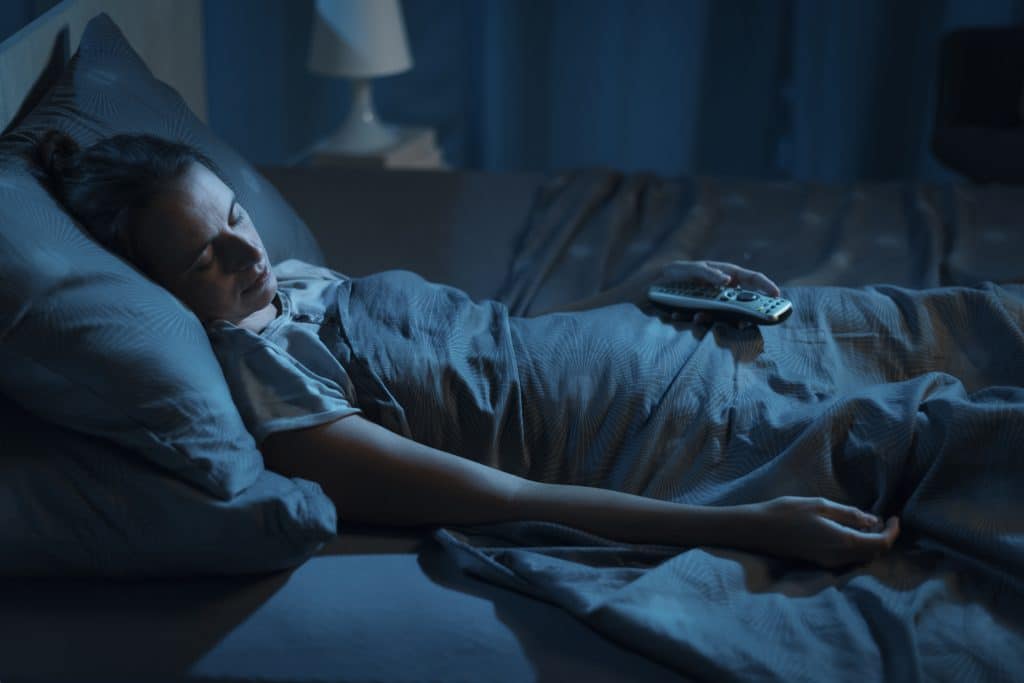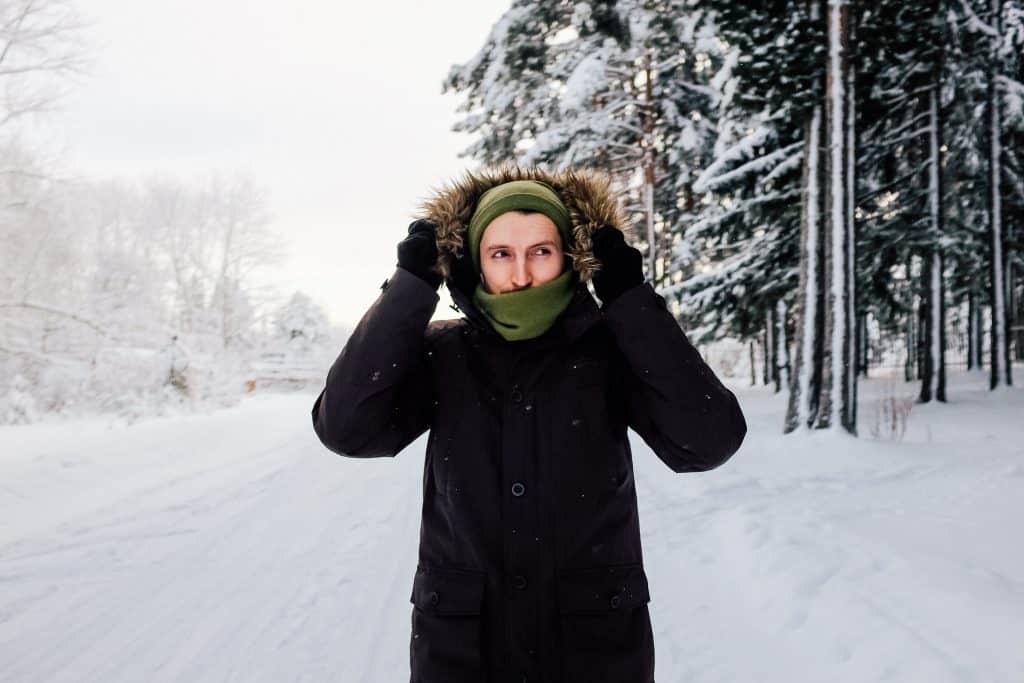Are you consistently tired and overwhelmed, no matter how much sleep you get? If so, you may be dealing with the effects of Sleep Deprived. Experiencing too little quality rest can affect your physical and mental health, so it’s important to recognize when this is happening. This article will explore the common signs of sleep deprivation– including insomnia, poor concentration, and unusual mood shifts – and discuss methods for getting back on track with your sleeping schedule.
Contents
The Dangers Of Being Sleep Deprived

Sleep deprivation is a serious issue many people face, yet they often do not recognize its risks. Sleep deprivation can lead to various negative effects, from increased stress and irritability to slowed reaction time and difficulty concentrating. Furthermore, research suggests chronic lack of sleep may cause obesity, diabetes, and heart disease.
For these reasons and more, it’s important to prioritize healthy sleep habits to achieve optimal physical and mental well-being. So Instead of opting for late-night movies or scrolling through social media, take the time to practice good sleep hygiene – turn off electronics at least an hour prior to bedtime, set a consistent sleep schedule, and stick with it – which can ultimately help you feel more alert and energized throughout the day.
Signs You Are Sleep Deprived
It’s no secret that sleep deprivation can have a significant impact on your day-to-day life. If you’re wondering if you’re getting enough rest, here are some common signs to look out for:
Moody

When you’re feeling moody, there is a chance that it could be a sign of sleep deprivation. Sleep deprivation can manifest in many ways, including a lack of focus and increased irritability. While this does not always mean you are short on sleep, it should be noted that your mood can suffer if your body isn’t getting the recommended amount of rest each night.
If you have found yourself increasingly impatient, impulsive, or even displaying erratic behavior, then chances are your body is screaming for more shut-eye. Taking time before bed to practice relaxation techniques, creating an ideal environment for sleeping, and planning to get adequate rest are some key steps to better overall well-being.
Productivity and Performance

Poor sleep can have a disastrous impact on your productivity and performance. For example, if you’re sleep deprived, it will take longer to process information, and you may be prone to making more mistakes or errors in judgment. Memory problems are also common among those who don’t get enough restful sleep. And not just at the moment; lack of sleep can affect your ability to recall memories and learn new skills over time too.
To tell the signs of being sleep deprived, pay attention to how long it takes you to complete tasks, your reaction time when completing cognitive tasks, and most importantly, how alert you feel throughout the day. If it is significantly low, these can all be signs that you lack restful sleep, and you should address this issue sooner rather than later.
Drowsy

Sleep deprivation can be a severe issue that can cause fatigue and drowsiness during the day. This is often one of the earliest warning signs that you may not get enough sleep at night. Feeling drowsy after a long and busy day can be normal; however, constantly feeling sluggish or unable to stay awake throughout the day could mean that you’re not adequately rested.
If this symptom becomes persistent, it’s worthwhile considering making some changes to your sleep habits and ensuring that you’re getting the recommended seven to nine hours of rest each night.
Getting Out Of Bed

Everyone has a morning when they just want to stay in bed a bit longer. But if this is the normal way you approach starting each day, it may indicate that you’re not getting enough sleep. Difficulty getting out of bed can be a major sign of sleep deprivation as your body’s internal clock shifts and adapts to being chronically sleep deprived.
Without adequate rest, your body becomes used to being more awake during nighttime hours and wants to go back to sleep earlier in the morning. If this sounds like you, consider consulting your doctor about lifestyle changes that could help alleviate your chronic fatigue and make mornings easier.
Medical Issues

When sleep deprivation strikes, it becomes evident that the body is impacted in more ways than one. Beyond feeling exhausted and struggling to focus, medical issues can also worsen when a person is not getting enough rest. For those who suffer from chronic medical issues such as diabetes, asthma, or heart disease, in particular, this can be dangerous. Not allowing for proper and regular sleep can result in poor management of these conditions and further deterioration of health. Therefore it is vital to be aware of the signs of sleep deprivation so that you can address them before any serious medical complications arise.
Sickness

When you don’t get enough sleep, your body suffers the consequences. One of the most noticeable signs of being sleep deprived is the presence of sickness. If you find yourself getting sick more often than usual or feeling run-down and ill even after a good night’s sleep, it could indicate that you’re not getting adequate rest. Multiple studies have found a link between a lack of sleep and weakened immune systems.
People who are short on sleep tend to be more susceptible to colds and other infectious illnesses, making it a vital sign to look out for if you feel like you’re not getting enough rest. Taking the time to understand your body’s needs and creating healthy routines for yourself can ensure you get enough shut-eye each night to avoid feeling sick from lack of slumber.
Appearance

The effects of sleep deprivation on your appearance are often hard to ignore. Those who don’t get enough sleep may look older than they are and have duller skin with an uneven tone and texture. Dark circles or bags under the eyes and pale skin are also usually strong indicators of sleep deprivation. Additionally, a person’s posture can become slumped and unenergetic when they lack sufficient rest, giving off an aura of exhaustion easily recognizable by strangers.
All these signs, in combination, point to a person not getting enough shut-eye – so if you recognize them within yourself and others, it may be best to prioritize sleeping more for the sake of your health and well-being.
If You Recognize These Signs, You May Be Sleep Deprived!
In conclusion, many signs can indicate a person is not getting enough sleep, from difficulty waking up and developing medical issues to appearing unwell and feeling chronically exhausted. If you recognize any of these symptoms in yourself or others, it may be best to prioritize getting more rest to benefit your health. Taking the time to understand your body’s needs and create a healthy sleep routine can help ensure you get the shut-eye that your body needs. In doing so, hopefully, you will be able to gain the energy and focus necessary to power through each day feeling your best!


